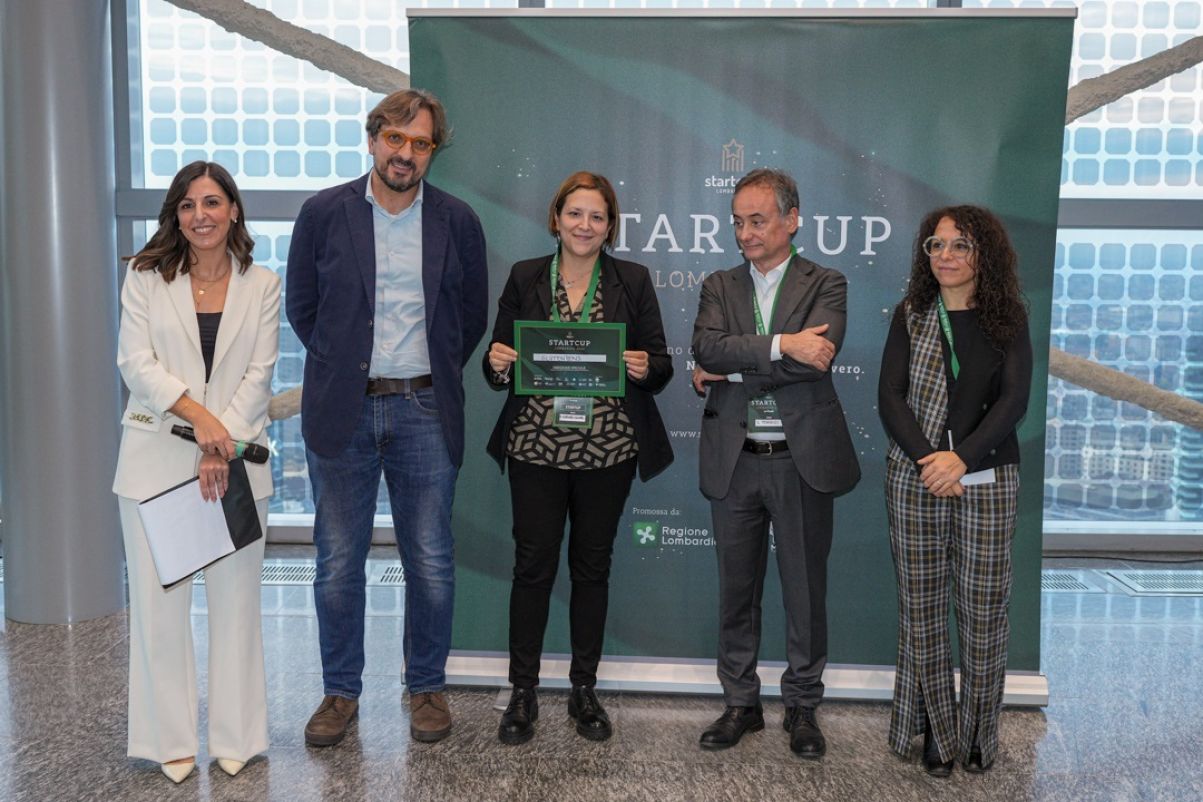An advanced technology to ensure safe meals and improve the lives of millions through an award-winning electrochemical device at Start Cup Lombardia 2024
Awarded the Special Mention for Women Entrepreneurship at the Start Cup Lombardia 2024, Glutensens stands out as an innovative startup in the food safety sector. Founded by Chiara Di Lorenzo, an associate professor at the University of Milan, the startup has developed an electrochemical device capable of detecting gluten in real time. This tool is primarily targeted at the restaurant industry, with plans to expand into the food manufacturing sector.
“The mission of Glutensens is to eliminate the risks of gluten contamination and provide a practical and safe solution for people with celiac disease and non-celiac gluten sensitivity,” explains Di Lorenzo, CEO and founder of Glutensens. “Celiac disease is on the rise, both in Italy and Europe, a growth facilitated by improvements in diagnostic methods. Gluten sensitivity, on the other hand, affects an even larger number of people: approximately 10 million in Italy and 40 million in Europe.”
The device developed by Glutensens relies on an innovative electrochemical technology, ensuring fast, accurate, and cost-effective results. Its primary effectiveness lies in quickly testing food to ensure customer safety. Another strength of the device is its ease of use. “With brief training, restaurateurs can easily use it to verify gluten contamination, even in processed foods.”
Chiara Di Lorenzo emphasizes that the project idea arose from the need to improve the quality of life for people with celiac disease, who often have to cope with social anxiety and isolation due to gluten contamination in dishes prepared outside the home. “Having a system that quickly resolves the contamination issue guarantees food safety and peace of mind for individuals with gluten-related disorders,” explains Professor Di Lorenzo.
A key goal of Glutensens is to obtain certification from an external body, similar to ISO certifications, which would confirm that restaurants follow the correct guidelines provided by the startup. This step will further strengthen consumer trust in gluten-free dining. Looking ahead, the startup aims to develop a portable device designed directly for consumers. This evolution responds to the growing demand for gluten-free dishes, which account for 10% of requests in the Italian food industry—well beyond the percentage of people with celiac disease.





